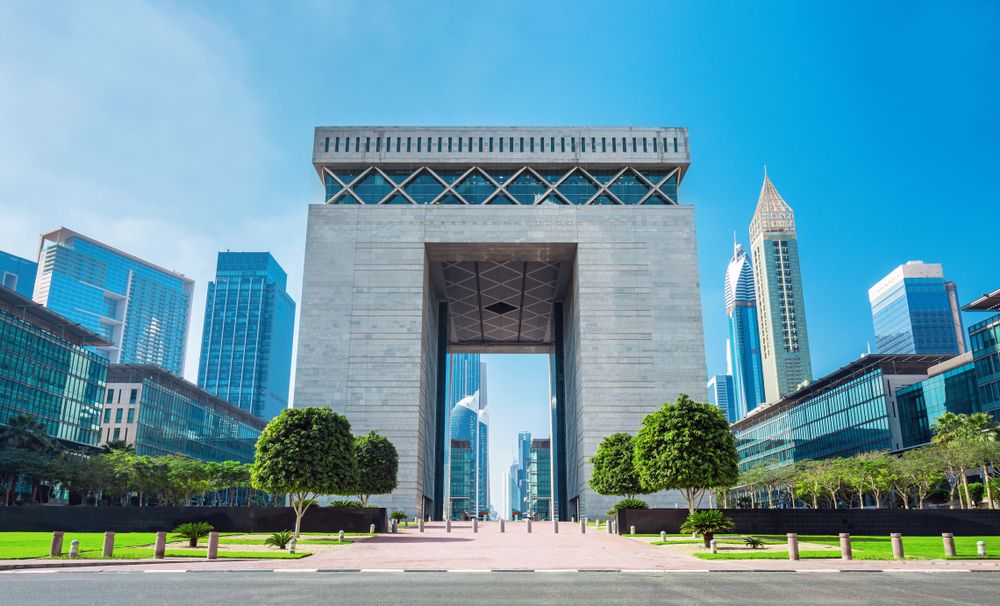A case for Dubai as a fintech hub

Salmaan Jaffery is the chief business development officer at the Dubai International Financial Centre (DIFC) Authority
This is an exciting time for the financial services sector. We are witnessing unprecedented change in the global financial landscape, where emerging markets are proving to be some of the most dynamic and rewarding destinations for investment and growth.
Financial technology (fintech) is driving this transformation, impacting how financial services are accessed by customers and provided by institutions.
Globally, fintech continues to grow and disrupt the financial services industry, with the market set to reach $305.7 billion by 2023 according to the Global Fintech Market Report (2018-2023).
However, it is in the untapped markets of the Middle East, Africa, and South Asia (MEASA) region that the sector’s real potential and impact will be most acutely felt.
The MEASA region contains diversified market segments, ranging from high net-worth individuals to a sizable young, emerging middle class that is unbanked, yet “mobile phone native”, and eager to adopt mobile apps. Already, the UAE is home to one third of fintech startups in the Middle East and North Africa, the largest community in the region, followed by Turkey, Jordan and Lebanon. In fact, the number of fintech companies in the region is expected to reach 1,845 in 2022, an impressive 230 per cent increase from 559 in 2015.
The UAE’s success stems from its commitment to becoming a global leader in fintech, by supporting startups and promoting the adoption of technology. As an example, Dubai’s Blockchain Strategy outlines its ambition to move 100 per cent of government transactions to the blockchain by 2020. What’s more, by 2021 over 50 per cent of the UAE’s federal transactions will be powered by blockchain technology, thus fuelling a smart economy and creating opportunities for entrepreneurship.
The opportunities are also ripe in the private sector, with the UAE and Dubai sitting in the midst of a growing population of some three billion people, 70 per cent of whom have limited or no access to financial services. Dubai’s strategic position between the East and West means it can provide an accessible bridge to these fast-growing markets that are not saturated or dominated by large incumbents. The advantages all fall under the UAE’s overarching ecosystem, which aims to provide international venture capitalists, angel investors, and family funds with the certainty and access the need to capture MEASA fintech opportunities.
To foster this growth and fast-track innovation, the Dubai government is providing these regional and global startups with a rich and vibrant accelerator and incubator ecosystem, such as the Dubai Smart City Accelerator, Dubai Future Accelerators and, of course, DIFC’s own FinTech Hive. These accelerators provide a platform that brings together various stakeholders, including financial institutions, government entities, technology partners and entrepreneurs to address key challenges facing fintech startups today, such as visibility, customer education and trust.
The DIFC, for example, has made significant investments into building an ecosystem that includes a supportive infrastructure, forward-thinking regulation, subsidised licensing and funding opportunities. Today, the Centre is home to a dynamic community of more than 200 fintech-related companies, all benefiting from a growing network of strategic partnerships across the globe. The DIFC has also committed a $100 million to investing directly into growth-stage fintech startups that demonstrate the potential to transform financial services in the region through a dedicated fintech fund.
While fintech is a key focus for Dubai and the DIFC, it is important to recognise that these initiatives are cogs in a much larger machine. The broader strategic vision of HH Sheikh Mohammed bin Rashid, Vice President and Prime Minister of the UAE, and Ruler of Dubai, remains the framework for all innovative developments. The city’s transformation into a technology-first environment aims to empower, deliver and promote an efficient, seamless, safe and impactful city experience for residents and visitors. Providing greater access to financial services, developing a paperless society and a enhancing its world-class business environment will ultimately drive economic growth for the UAE.
Guided by these strategic pillars, I’m confident that the UAE, and Dubai in particular, will continue to reinforce its position as one of the world’s top ten fintech hubs and remain the jurisdiction of choice for startups looking to scale their business across the region.

Leave a Reply